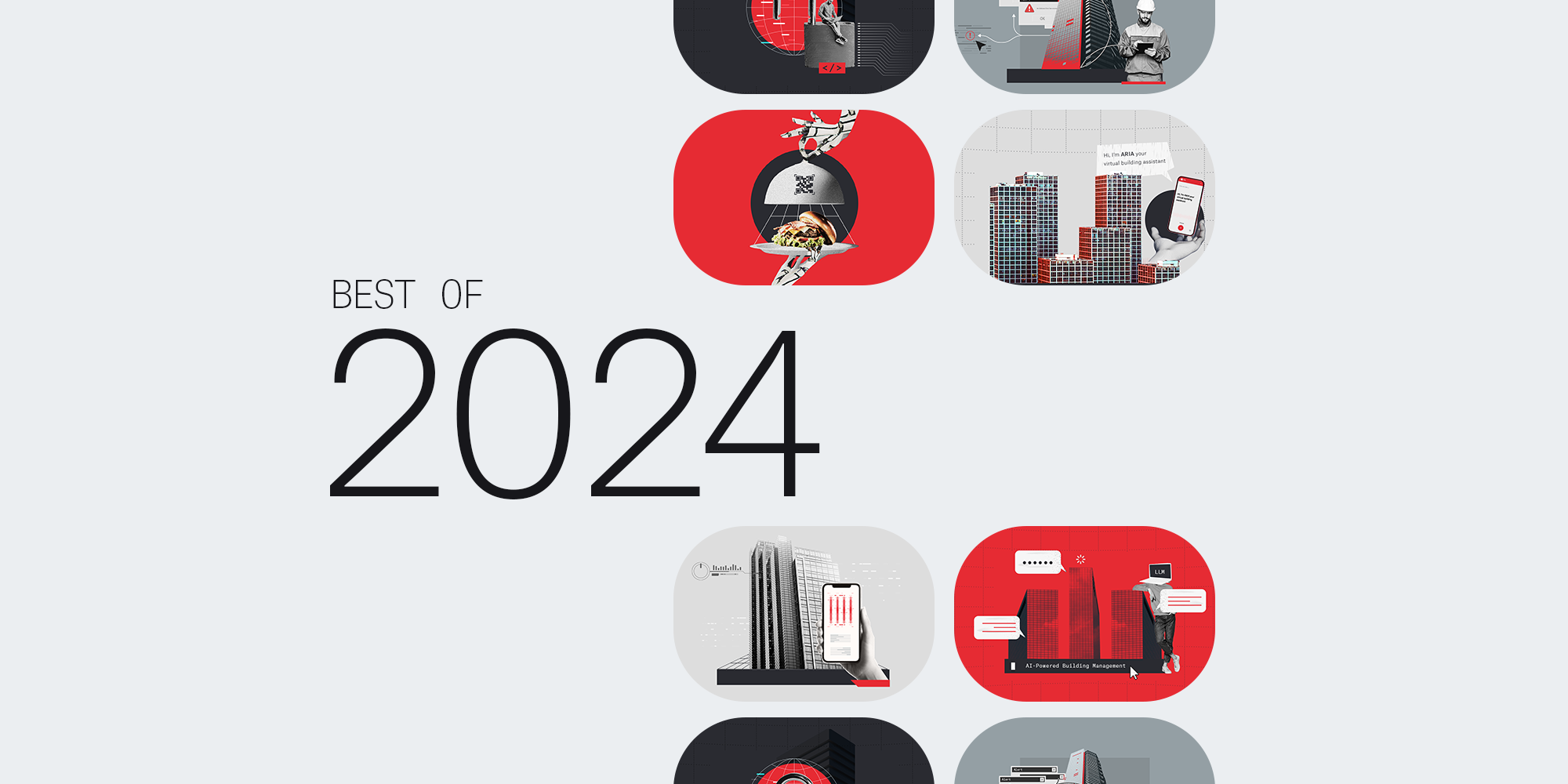AI in convenience stores: 8 real-world examples

Key takeaways
- AI is optimizing c-stores, making for happier customers and more efficient processes.
- AI-powered inventory management optimizes stock levels and reduces waste in convenience stores.
- AI-driven recommendations personalize customer experiences based on purchase history.
- AI-enhanced security systems detect suspicious activity in real-time to prevent theft.
- AI-powered dynamic fuel pricing systems adjust fuel prices in response to market conditions.
- Frictionless checkout systems use AI to automate payments and eliminate lines.
- AI-driven HVAC and lighting systems reduce c-store energy consumption.
- AI-powered voice analytics track cashier performance and improve employee engagement.
- Conversational AI systems automate call-in orders, enhancing efficiency and customer satisfaction.
Convenience stores are everywhere—on the corner of your street, next to your gas station, or just a pit stop on a long road trip. But what you may not know is that these stores are undergoing a quiet revolution, thanks to the rise of artificial intelligence (AI). From keeping shelves stocked with your favorite snacks to predicting fuel prices and reducing energy consumption, AI is reshaping the way c-stores operate and enhance the customer experience.
1. AI-powered c-store inventory management
Imagine a convenience store that never runs out of Marlboro Lights on a Friday night, always orders exactly the right amount of banana muffins, and sells all its milk before the expiration date is up.
That’s exactly what companies like Trax aim to do. Using AI-powered image recognition to ensure product availability and proper shelf placement, Trax provides real-time insights into issues like out-of-stock items, misplaced products, and compliance with promotional displays.
Trax’s machine learning algorithms also analyze sales data and customer behavior, offering predictive analytics to help stores optimize inventory and reduce waste. This means retailers can automate restocking, making sure the right products are on the shelves exactly when customers need them.
Did you know? Tobacco products make up around a third of the average c-store’s annual revenue.
2. Personalized c-store customer experiences with AI-driven recommendations
You know how Netflix can tell what you’d want to watch next? Well, soon your local convenience could be using the same technology to assess just how badly you’re craving an ice-cold Coca-Cola®. On top of that, it’ll suggest the right potato chips to balance out that carbonated goodness.
Platforms like Punchh, for example, are helping the likes of Stinker Stores by using AI-driven recommendation engines to analyze customers’ snack-buying histories, measure customer loyalty, and deliver targeted products that are highly individualized - making shoppers feel like the store knows them personally.
3. AI-enhanced security and real-time theft prevention
In 2022, convenience stores in the US accounted for 10,751 robberies, making them one of the highest risk locations for theft.
It’s no wonder, then, that security is a top concern for c-store owners, particularly given their long hours and high volume of cash transactions. AI-driven video analytics solutions, such as those provided by Solink, are enhancing security by identifying suspicious behavior in real-time. For example, AI can monitor store footage to detect unusual movements near high-value items or even identify potential theft before it occurs.
This proactive approach helps store managers mitigate risks, ensuring the safety of both staff and customers, while minimizing losses due to theft.
4. AI-driven c-store HVAC and lighting optimization
Convenience stores use up to seven times more energy per square foot than traditional commercial buildings. Lighting and HVAC systems are significant contributors to their energy intensiveness, which makes sense given they’re generally open 24/7.
To combat this, companies like BrainBox AI are using AI to optimize lighting and HVAC systems based on a building’s data, occupancy, and outside weather conditions. By reducing unnecessary energy use, AI-driven HVAC systems are saving energy costs, providing greater visibility on in-store energy trends, and reducing the overall carbon footprint of c-stores.
Did you know? Inconsistent temperatures force refrigeration units to work harder, which not only compromises food safety and leads to spoilage, but also increases the units’ energy consumption – making them costlier to run.
5. AI-powered dynamic fuel pricing
Did you know gas stations adjust their fuel prices up to a few times per day, depending on changes in wholesale prices, inventory deliveries, and competition from their neighbors? Smart stations are now using AI-powered real-time fuel pricing systems like PriceAdvantage and EdgePetrol to monitor everything from nearby competitor prices to regional fuel demands and even the weather. These systems enable users to push price changes to point-of-sale systems, pumps, and digital signs, often in under 15 minutes.
6. Frictionless checkout with AI-powered computer vision systems
Imagine walking into your favorite convenience store, grabbing a soda, and then just… leaving. No lines, no fumbling for cash, no awkward small talk. AI-powered computer vision systems like those from Zippin are making this a reality.
Zippin uses weight sensors and cameras to track items as customers pick them up, automatically charging their accounts and reducing the time it takes to buy a drink and a snack from 20 minutes to 20 seconds. So, what happens if a customer changes their minds? Zippin thought of that too – its system automatically detects if an item is placed back on the shelf, ensuring customers are only charged for what they walk out with.
Did you Know? Zippin worked with Lawson, one of Japan’s leading convenience store brands, to create a pilot store in Tokyo, which was the first checkout-free store in the world to use palm reader technology.
7. Improving employee performance with AI-powered voice analytics
Did you know US convenience stores handle over 160 million transactions every single day? Cashiers are on the front lines facilitating these transactions and playing a huge role in driving promotions, loyalty programs, and customer satisfaction. But until now, it’s been tough for store owners to accurately measure cashier performance against their training.
Enter InStore.ai’s cashier scorecard and gamification app. This AI-powered tool, currently being piloted by the likes of Cubby's & Mach 1 Stores, uses voice analytics to capture and analyze conversations between cashiers and customers. This AI-based data allows stores to track, measure, and reward cashiers for their efforts. It also helps identify top performers and best practices that can be shared across the team – resulting in more motivated employees and an all-around better customer experience.
8. C-store order automation with conversational AI systems
It’s dinnertime and you have hungry kids in the car. You call in to your local general store on your way home to order a pizza. Instead of waiting forever on hold or speaking to a busy employee, you’re greeted by an AI assistant that quickly takes your order, suggests you add breadsticks and a two-liter soda for a small discount, automatically applies your loyalty points to the order, and reminds you you’re just one order away from earning a free pizza.
This is just the scenario that Casey's General Stores hopes to achieve in its 2,500 locations across the US. Using an AI-powered conversational system from SYNQ3 Restaurant Solutions to automate the process of taking call-in orders, Casey’s General Stores can seamlessly upsell, integrate customer rewards, and link call-in orders to consumers' digital profiles.
By automating call-in orders, AI conversational systems free up employees to focus on other tasks, improving store efficiency and customer satisfaction.
AI: It’s convenient
From HVAC optimization and real-time inventory management to personalized customer engagement, AI is firmly in the future of convenience stores. As AI technologies continue to evolve, stores that adopt these innovations will no doubt see reduced operational costs, waste, and emissions, while also improving customer satisfaction and efficiency.
Find out how you can implement AI in your convenience store today.












